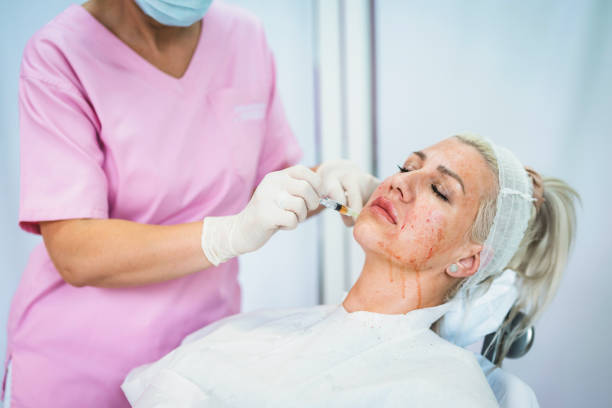In the realm of modern medicine, taking preventive measures to ensure long-term health and well-being is of paramount importance. Among these measures, routine health check-ups hold a prominent place, providing individuals with an opportunity to proactively address potential health concerns. For women, making an investment in their health through regular check-ups is not only advantageous but also an empowering act. This article, delves into the significance of regular check-ups in women’s health, shedding light on the numerous benefits they offer for a healthier and happier life.
Timely Detection and Prevention
One of the primary advantages of regular check-ups for women is the early identification and prevention of health issues. Many serious medical conditions, such as cancer, heart disease, and diabetes, may not exhibit noticeable symptoms during their initial stages. Routine check-ups, including screenings and physical examinations, can help catch these conditions before they advance to a more critical and potentially untreatable stage.
Comprehensive Health Assessment
Regular check-ups offer an opportunity for a comprehensive evaluation of health. During these appointments, healthcare providers assess various aspects of a woman’s well-being, including blood pressure, cholesterol levels, and body mass index (BMI). This information contributes to a better understanding of overall health and the identification of any risk factors that may require attention.
Monitoring and Managing Chronic Conditions
For women managing chronic conditions like diabetes, hypertension, or thyroid disorders, regular check-ups are indispensable for ongoing monitoring and effective management. During check-ups, healthcare providers can assess the progression of chronic conditions, make necessary adjustments to medications or treatments, and provide advice on lifestyle modifications that can improve overall health.
Effectively managing chronic conditions is critical for preventing complications and sustaining a good quality of life. Regular check-ups ensure that women receive the necessary support and interventions to keep these conditions under control and prevent them from deteriorating over time.
Reproductive Health
Women’s health check-ups play a pivotal role in addressing reproductive health needs. These appointments encompass a range of services, including gynecological examinations, discussions about contraception options, and screenings for sexually transmitted infections (STIs). They also offer a platform for conversations about family planning, fertility concerns, and menopause management.
Gynecological examinations, including Pap smears and pelvic exams, are fundamental for detecting issues such as cervical cancer or abnormal uterine bleeding. Additionally, women can receive guidance on contraception methods that align with their individual preferences and family planning goals. For those who are trying to conceive, check-ups may involve discussions about fertility evaluation and guidance on improving fertility health.
Mental Health and Well-being
Mental health is an integral component of overall well-being, and regular check-ups provide an ideal opportunity to discuss mental health concerns. Many women may experience stress, anxiety, or depression, which can impact their physical health as well. Healthcare providers can screen for mental health issues and offer guidance, support, or referrals to mental health professionals when needed.
By addressing mental health concerns during check-ups, women can receive timely interventions and access resources to manage stress, anxiety, or depression effectively. This holistic approach to healthcare acknowledges the interconnection between physical and mental well-being, promoting a more balanced and fulfilling life.
Building a Trusted Healthcare Relationship
Regular check-ups enable women to establish and nurture a trusted relationship with their healthcare providers, including their primary care physician or ob-gyn in Richmond, VA, creating a supportive healthcare environment where women feel comfortable discussing their health concerns and seeking guidance.
A trusted healthcare relationship also ensures continuity of care. Healthcare providers who are familiar with a patient’s medical history can make more informed decisions and recommendations. This relationship allows for personalized healthcare plans that address each woman’s unique needs and health goals.
Conclusion
In conclusion, regular check-ups are a cornerstone of women’s health and well-being. They offer early detection and prevention of health issues, comprehensive health assessments, and monitoring and management of chronic conditions. These appointments also address reproductive health needs, promote mental health and well-being, and establish trusted healthcare relationships.
Investing in women’s health through regular check-ups is an empowering act that demonstrates a commitment to self-care and a determination to lead a healthier, more fulfilling life. By embracing the importance of check-ups, women can take control of their health, make informed decisions, and enjoy the benefits of a proactive approach to healthcare. Prioritizing regular check-ups is an investment in a brighter, healthier future.






